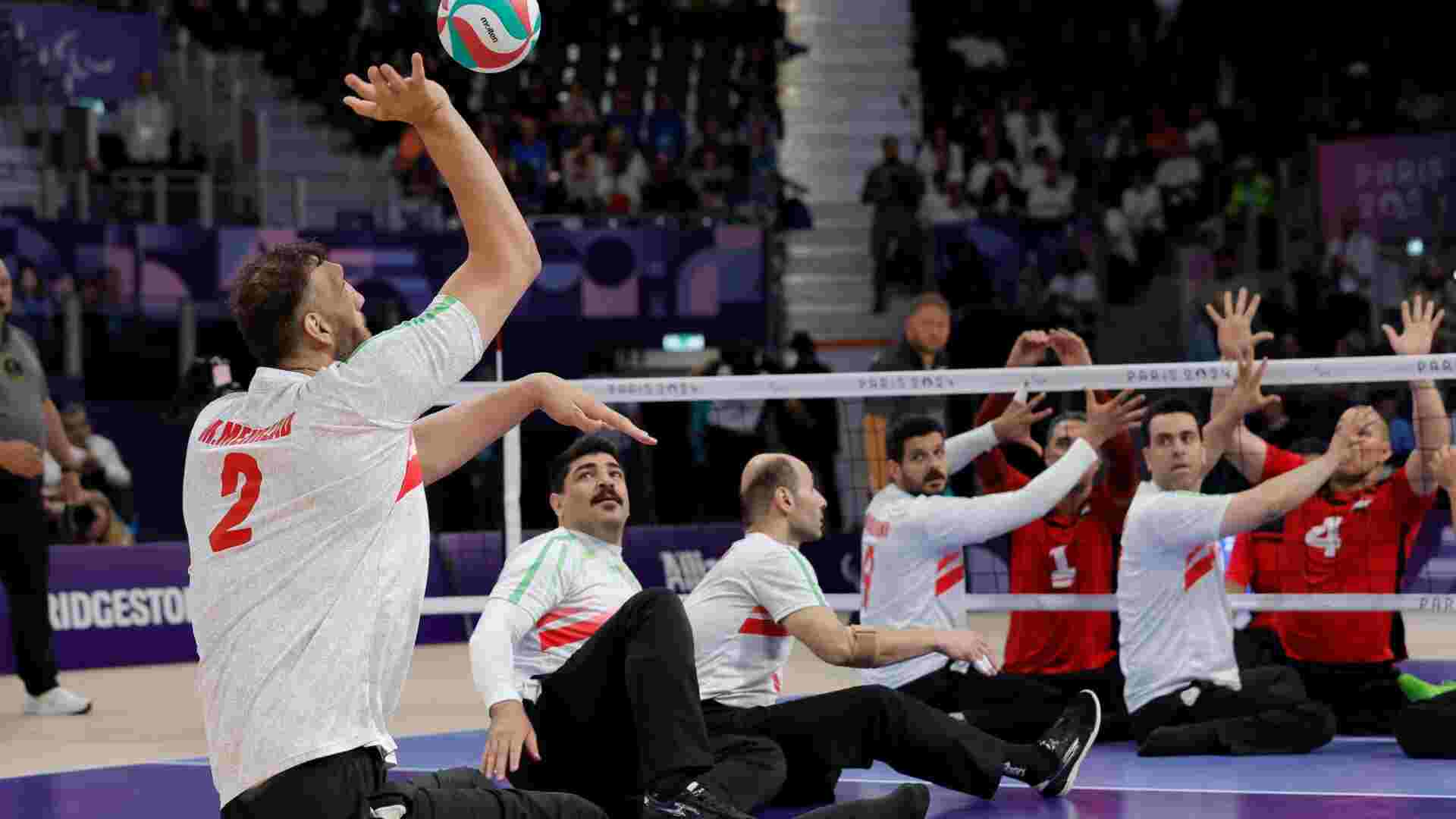In the sitting volleyball semi-final at the Paris Paralympics, Iran’s victory over Egypt was sealed with a decisive spike from Morteza Mehrzad, the team’s not-so-secret weapon and the world’s second-tallest man. At 8 feet 1 inch tall, 36-year-old Mehrzad was born with gigantism and also uses a wheelchair after a bike accident as a teenager halted the growth of his right leg. When playing, he has to duck his head to keep it under the net.
Mehrzad arrived at the Paralympic village to find there wasn’t a bed large enough for him, forcing him to sleep on the floor. Shy by nature and uncomfortable with the attention his height brings, he plays with a serious demeanor, rarely smiling. Yet, his coach Hadi Rezaei describes working with him as “one of the most important things I have done during my whole life.”
Mehrzad’s presence brings a global spotlight to sitting volleyball and will likely captivate the world again in Iran’s final against Bosnia and Herzegovina. Although Mehrzad is quiet off the court, his passion for the sport is unmistakable. During the fourth set of the semi-final, he dominated, celebrating every point with powerful fist pumps. Rezaei, who has led Iran to four Paralympic gold medals during his seven stints as coach, first discovered Mehrzad after seeing him on Iranian TV. At that time, Mehrzad was living in isolation, but Rezaei convinced him to try sitting volleyball, integrating him into society and the sport.
Since joining the team for the Rio Games, Mehrzad has helped secure two gold medals, with a third potentially on the horizon. Though Rezaei strategically rotated Mehrzad in and out of the semi-final to prevent injury, Iran is not reliant on just one player—each teammate contributes to their strength, and Egypt’s respect for the team was clear in their celebrations of each point won.
Iran’s final opponent is Bosnia and Herzegovina, whom they beat in the world championship final two years ago. Coach Rezaei emphasized the significance of the upcoming match for showcasing the talents of disabled athletes. He stated, “If I win the match or am just a finalist, it will be my great pleasure to be there. I will be more than happy.”
Mehrzad’s bed issue has now been resolved. Although in Tokyo, a custom bed was made for him, the arrangements in Paris initially fell short, leading to Mehrzad sleeping on the floor. After the issue attracted media attention, the International Paralympic Committee stepped in, and Mehrzad finally received a bed that fits. “The problem has been solved,” confirmed Rezaei after the semi-final.






















